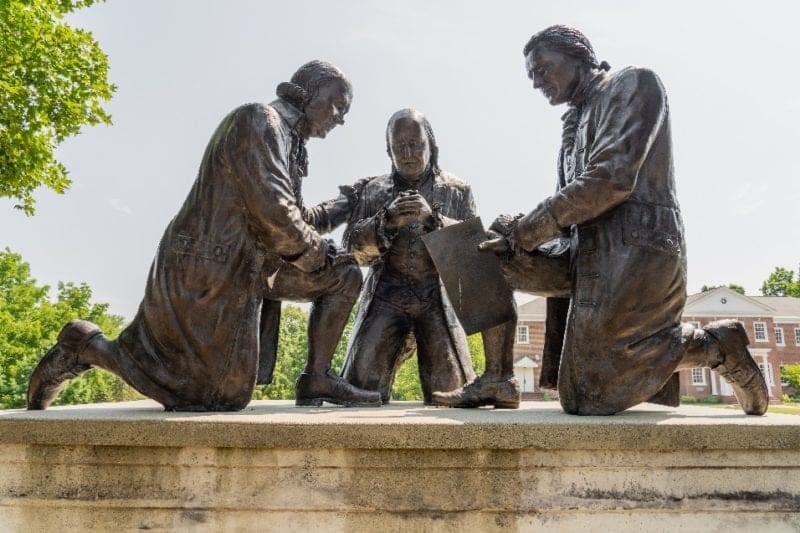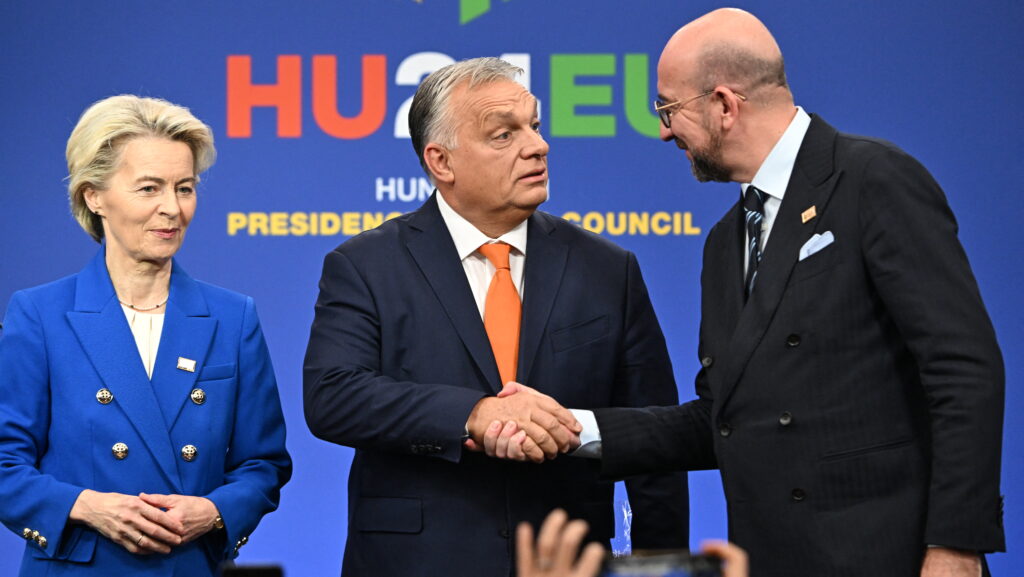In the autumn of 2020, a book of great interest was published by Roger Kimball at Encounter Books1, sadly without much apparent fanfare. A quick internet search does not reveal a book launch event or any significant reviews, even in conservative journals. I very much hope that this can mostly be attributed to the restrictions of the COVID pandemic and will change this year, because this collection of essays by some of the most distinguished conservative thinkers of our time deserves a great deal more attention. The aim of this short review is to highlight the significance of Kimball’s most recent work.
Although the essays are largely focused on the United States, there are frequent references to the European Union as well, and most of the issues raised in it also resonate in the context of our continent. Since some of the problems identified are actually far more acute in some European countries, I believe that this volume has much to say to European audiences as well, especially as its central premise is that we in the West are today at a crossroads. Our civilization is facing a serious crisis, one which has been brewing since at least the end of the Second World War, and which threatens to demolish our democracies and societies. Of course, alarmist literature about the fall of the West is nothing new, and we have had no shortage of it since at least the beginning of the twentieth century, but well researched, informative, and very up-to-date studies of the sort contained in this book have been very rare.
Different chapters of the book provide a great many examples of the sorts of problems we currently face, but perhaps the most extensive tally of these ills can be found in the essay written by Chris Buskirk, the editor and publisher of the journal American Greatness. Without trying to give a full list of the issues identified by the author, let us mention the stagnation of real wages, growing social inequalities which in turn lead to the gradual disappearance of the middle class, the rising levels of public and private debt, the increase of mental and physical problems such as the growing rates of obesity, depression, and suicides, the atomization of families, and low birth rates. On its own, the simple fact that today we live in societies which are unwilling to reproduce themselves (while more and more people are willing to commit suicide) should be enough of a warning sign that something is seriously wrong in the Western world.
Reading through these essays, it would seem that there are two distinct answers to the challenges we face. It is also clear that while one of these answers might actually be able to reverse these negative trends, the other has significantly contributed to them.
As Roger Kimball notes in his Introduction, we are essentially witnessing a battle between two views of liberty and sovereignty. In one corner, we can see a more ‘parochial’ view of liberty, ‘that affirms tradition, local affection and the subordination of politics to the ordinary business of life’, while at the other end, we can see a ‘more ambitious but also more “abstract” view’ that ‘seeks nothing less than to boost us all up to that plane of enlightenment from which all self-interested actions look petty, if not criminal and through which mankind as a whole … may hope for whatever salvation secularism leavened by utilitarianism may provide.’ So while one—more conservative—view of liberty respects individual liberties, it also respects cultural traditions, and understands the importance of community rights as well, which may sometimes require some restrictions on individual rights for the good of all. The other view, though it masquerades as the champion of individual liberties and advocates transcending cultural traditions (or at least Western cultural traditions), actually advocates community and cultural rights through multiculturalism, and is also more than willing to sacrifice personal liberties such as the freedom of speech or association for the greater good of complete equality. The book offers multiple examples of these tendencies, from so-called sanctuary cities where federal immigration laws are not respected, to race-specific safe spaces which are clear examples of racism, and to the obsession with diversity and identity politics which in reality only means ‘less white’. David Azerrad from Hillsdale College beautifully identifies this paradox in his essay: ‘Identity politics thus both denies and celebrates race at the same time. It cultivates guilt, repentance, and self-flagellation in whites while promoting pride, aggrievement, and vindictiveness in non-whites.’
Those who disagree with this progressive view of liberty are often called ‘illiberal’ or ‘populist’. This in turn leads us to the other main difference between the two groups, which relates to the question of sovereignty. So-called populists believe that sovereignty ultimately belongs to the citizens of a particular nation state, while their opponents think it ultimately lies in institutions, especially international organizations, which serve all mankind but are of course ultimately run by unaccountable elites. As Kimball puts it in his Introduction: ‘One view sees the world as a collection of independent sovereign countries that, although interacting with one another, regard the care, safety, and posterity of their own citizens as their first obligation. (…) The alternative view regards the nation state with suspicion as an atavistic form of political and social organization. (…) Ideally, according to this view we are “citizens of the world”, not particular countries, and our fundamental obligation is to all mankind.’
So while one—more conservative—view of liberty respects individual liberties, it also respects cultural traditions
As such, the biggest sin of the so-called populists is that they consider the interests, well-being, and prosperity of their own citizens as their primary concern. This is what really lay behind Trump’s ‘America First’ slogan, as well as Brexit. And this is what, traditionally, governments of democratic nations should be doing. It is no surprise therefore that today the biggest clash between these two opposing views occurs with regard to immigration. The questions of who controls the borders, of the mere existence of borders, and of who and how can become a citizen of a nation are most crucial for the sovereignty of a nation. Consequently, it is also no accident that the so-called populist governments of Hungary and Poland, with their vocal scepticism towards uncontrolled mass immigration, are in the crosshairs of progressive movements.
This is what lies behind the essay by the brilliant John Fonte of the Hudson Institute, about the American democracy promotion network, which is perhaps of most relevance for our region, as we feel its unfortunate consequences almost every day. Fonte examines the work done by publicly founded organizations such as the National Endowment for Democracy (NED) and Freedom House, and finds that their main focus is to continuously assault democratically elected conservative governments friendly to Judaeo-Christian values in countries like Hungary, Poland, or Israel: ‘The “illiberals”, “populists” and “nativists” always represent conservative democratic sovereigntist political forces (usually friendly, one might add, to traditional Christianity and Judaism) whether in Great Britain, Poland, Hungary, Israel, or Denmark.’ He also perfectly points out the absurd argument for surrendering more and more sovereignty to unelected international organizations in the name of democracy: ‘NED essayists are saying that democratic nation states that oppose further EU integration and that wish to determine their own immigration policy are somehow “undemocratic” and thus require lessons on “democratic values” from a political entity (the European Union) in which laws are initiated by an unelected bureaucracy rather than by an elected legislature.’
As we have seen, the book’s premise is that today we witness a clash between two distinct views of liberty and sovereignty which have the potential to fundamentally change the future of our civilization for the better or the worse. We can use several names for these two different views: illiberal or populist on the one hand, and progressive or globalist on the other, but the authors of the book make it clear that only the answers given by the first movement have the potential to lead to optimal outcomes for our societies. In this short review I had no choice but to cherry- pick some of these essays, and was unable to give to all the authors the credit they deserve. Still, I hope that these perhaps somewhat arbitrarily selected essays show that this book has a lot to offer those who, like the authors, believe that the future of our civilization lies in democratically elected nation states.
1Roger Kimball, Who Rules?: Sovereignty, Nationalism, and the Fate of Freedom in the Twenty-First Century (New York: Encounter Books, 2020).








